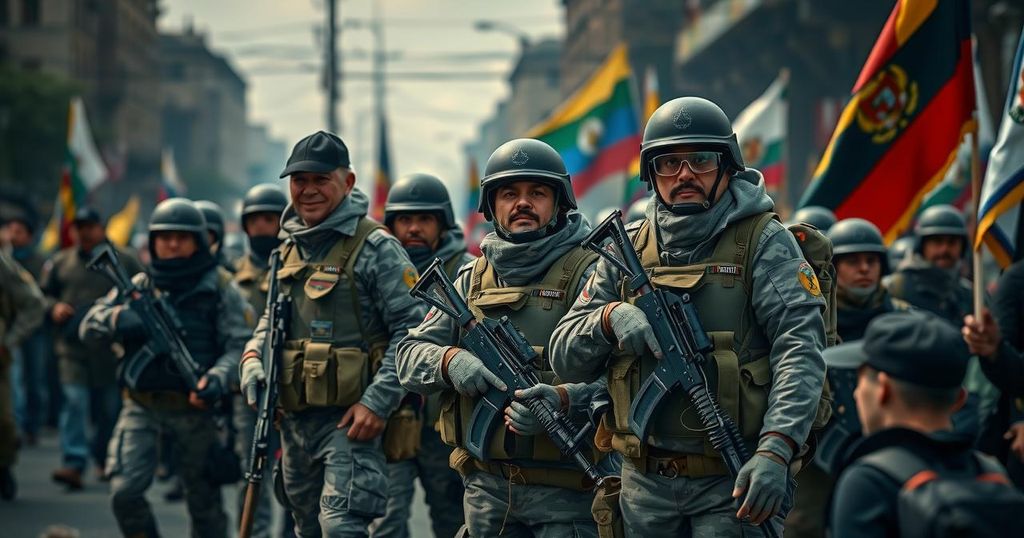The Bolivian government stated that 200 soldiers were purportedly taken hostage by supporters of ex-President Evo Morales as tensions rose regarding his arrest. There are conflicting narratives, with some local leaders denying the hostage claims, describing the situation instead as a vigil against military activity. The military faces criticism for its lack of preparation, raising concerns over the political climate leading up to upcoming elections.
The Bolivian government reported that over 200 soldiers were allegedly taken “hostage” by supporters of ex-President Evo Morales as they blockaded roads to oppose his arrest related to statutory rape charges. The military claimed that armed groups seized three barracks in central Chapare, leading to accusations of child soldiers being kidnapped and weapons being taken. Videos circulated showing soldiers among protesters wielding sticks. While government officials describe the soldiers as hostages, local Indigenous leaders vehemently reject this assertion, emphasizing that a significant number of people are simply maintaining a vigil. Moreover, critics within the military express concerns over how unprepared the forces were for the protests, citing insufficient state support and a lack of proper equipment. An official investigation into the breach of military security is underway. This evolving situation underscores the deep polarization in Bolivia’s political landscape, particularly between Morales’ supporters and the current government, potentially foreshadowing further conflict as Morales prepares for the upcoming elections.
The situation in Bolivia reflects the ongoing tensions related to Evo Morales, who held the presidency from 2006 to 2019. His return to front-line politics has triggered protests, particularly from his supporters in Chapare, an area historically aligned with him. The recent political actions around Morales’ arrest demonstrate the volatility surrounding his figure and highlight issues concerning human rights, military loyalty, and state authority. The claims of hostage-taking further complicate a sensitive social environment already impacted by political divisions and social unrest. The military’s preparedness and response to civilian actions also raises questions about governmental support and oversight.
In summary, the incident involving the alleged hostage situation of over 200 soldiers raises critical concerns about the political dynamics in Bolivia under President Luis Arce’s administration. The ongoing tensions reflect deeper societal divisions regarding Morales’ influence and the military’s role. As investigations begin, the outcome will likely have significant implications not only for the military but for the broader political discourse in the country.
Original Source: www.kgwn.tv






